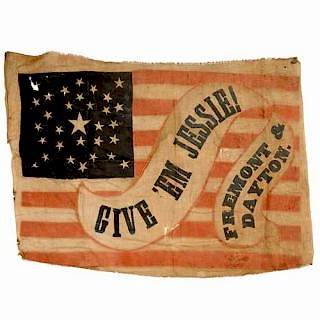Lieutenant Colonel David Evans, New York 20th Cavalry, Civil War Archive
About Seller
6270 Este Ave.
Cincinnati , OH 45232
United States
With offices in Cincinnati, Cleveland and Denver, Cowan’s holds over 40 auctions each year, with annual sales exceeding $16M. We reach buyers around the globe, and take pride in our reputation for integrity, customer service and great results. A full-service house, Cowan’s Auctions specializes in Am...Read more
Two ways to bid:
- Leave a max absentee bid and the platform will bid on your behalf up to your maximum bid during the live auction.
- Bid live during the auction and your bids will be submitted real-time to the auctioneer.
Bid Increments
| Price | Bid Increment |
|---|---|
| $0 | $25 |
| $500 | $50 |
| $1,000 | $100 |
| $2,000 | $250 |
| $5,000 | $500 |
| $10,000 | $1,000 |
| $20,000 | $2,500 |
| $50,000 | $5,000 |
| $100,000 | $10,000 |
About Auction
Nov 18, 2016 - Nov 19, 2016
Cowan's Auctions dawnie@cowans.com
- Lot Description
Lot of 15 letters and documents related to Lieutenant Colonel David Evans, New York 20th Cavalry, who served as provost marshal of Richmond following the city's fall in 1865; plus 7 ca 1866 letters written by Evans; and 2 very rare oaths of allegiance for Confederate naval officers.
David Morris Evans (1831-1924) began his military career in the Civil War with an instrument in his hands rather than a rifle. He enlisted as a musician on May 9, 1861 and mustered into the 35th New York Infantry, Co. A the next month. After becoming a private, his superiors saw great potential in him. He rose quickly through the ranks and obtained commissions up to 1st lieutenant within his first year of service. Leading his men, he fought with them through the battles at Manassas, Rappahannock Station, Second Bull Run, Antietam, Sharpsburg, and Fredericksburg.
He mustered out of the 35th NY on June 3, 1863 and transferred to the 20th NY Cavalry in July 1863. With the 20th NY, he reached the rank of lieutenant colonel by October 13, 1863 and colonel by March 1, 1865. Most of the paperwork in the archive dates from 1865 and includes: 7 ANsS from Richmond, VA by Evans concerning prisoners of war and the oaths of allegiance of many Confederate soldiers; 5 general orders concerning Evans' service; 11 ALsS from Evans to his wife. Confederate oath takers include: W. D. Porter, master of the ironclad Richmond, signed on April 1, 1865 by Evans and Porter; Marcellus Compf, 2nd VA Regiment; G.W. Hill; James Harring; and entire Co. I of the MD(?) mounted rifles.
Two orders are on Provost Marshal stationery, Richmond, VA, dated the day after the surrender at Appomattox C.H., April 10, 1865. Both are signed John Coughlin, Provost Marshal General, Department of Virginia. One reads: Lieut. Col. D.M. Evans, is to occupy a room in the Capitol Building and administer the oath of Allegiance to officers and soldiers of the Confederate Army. You will send the clerks of Lieut. Col. Manning to assist him while so engaged. The other was directed to Evans ordering him to set up in the Capitol.
A few days later, it was necessary to clarify: Any Confederate soldiers coming in & giving themselves up will be permitted to go to their homes upon giving the same parole as those surrendered by Gen. Lee. Within a week, they were victims of their own success. The Judge Advocate writes [April 17, 1865]: If you can spare me some more blanks for paroling prisoners of war, you will much oblige me, as I have a very large number waiting, & have not the blanks.
Colonel Evans was mustered out July 31, 1865 and returned to civilian life.All are in good condition with typical folds and minor toning of the paperCondition
- Shipping Info
-
SHIPPING. At the request of the buyer, Cowan's will authorize the shipment of purchased items. Shipments usually occur within two weeks after payment has been received. Shipment is generally made via UPS Ground service. Unless buyer gives special instructions, the shipping method shall be at the sole discretion of Cowan's Auctions, Inc.. Cowan's is in no way responsible for the acts or omissions of independent handlers, packers or shippers of purchased items or for any loss, damage or delay from the packing or shipping of any property.
-
- Buyer's Premium



 EUR
EUR CAD
CAD AUD
AUD GBP
GBP MXN
MXN HKD
HKD CNY
CNY MYR
MYR SEK
SEK SGD
SGD CHF
CHF THB
THB












